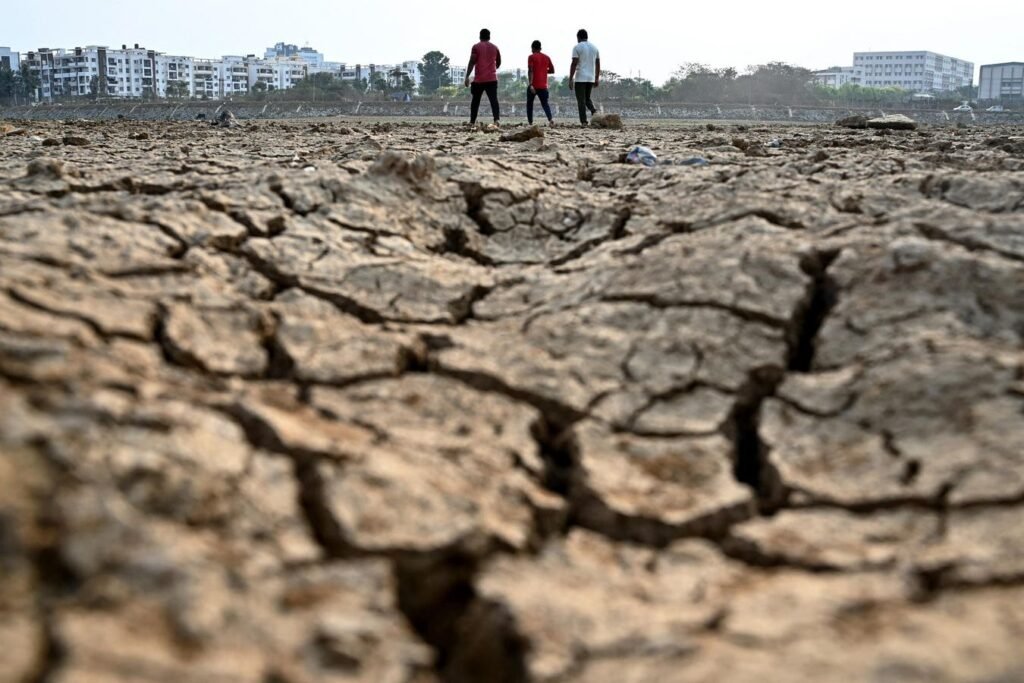TOPSHOT – Men walk across the arid Nallurahalli lake at Whitefield in Bengaluru on March 10, 2024. (Photo by Idrees MOHAMMED / AFP) (Photo by IDREES MOHAMMED/AFP via Getty Images)
AFP via Getty Images
India, despite being one of the world’s fastest-growing economies and a leading producer of solar energy, is highly susceptible to the effects of climate change. This vulnerability disproportionately affects children, as a recent study has shown that children in the most climate-vulnerable districts in India are at greater risk of malnutrition, stunted growth, and limited access to healthcare.
The study, published in the journal PLoS One on November 26, 2025, reveals that climate change significantly impacts health outcomes, particularly in vulnerable districts.
The study highlights that climate change disrupts healthcare delivery and exacerbates existing health disparities, emphasizing the need for climate-resilient practices and investments in healthcare infrastructure. It also points out that certain states in India, such as Rajasthan, Jharkhand, Chhattisgarh, and Uttarakhand, are highly vulnerable to climate change, necessitating targeted interventions.
Despite challenges, India has made progress in maternal and child healthcare, with initiatives like the National Health Mission contributing to improved health outcomes. However, disparities persist, especially in underdeveloped regions and among marginalized communities.
Gender disparities also remain a concern, with female children facing greater vulnerability to malnutrition. Efforts to address these disparities and build climate-resilient healthcare systems are crucial for achieving sustainable development goals and ensuring equitable access to healthcare for all.
Overall, the study underscores the importance of integrating climate considerations into healthcare planning and delivery to mitigate the adverse effects of climate change on vulnerable populations in India.


